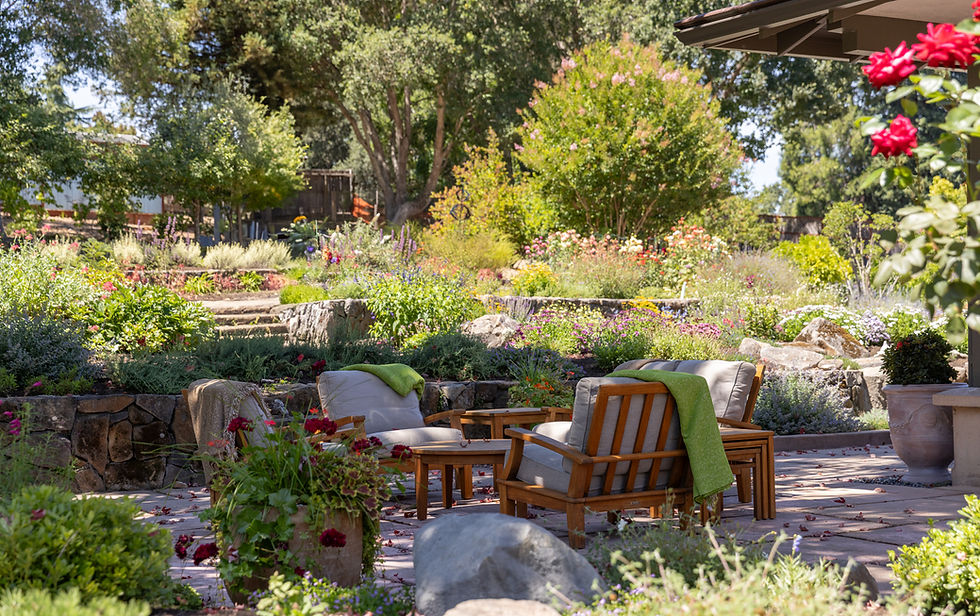Effective Ways to Manage Garden Waste: From Composting to Recycling
- LandZen

- Jan 7, 2025
- 2 min read
What to Do with Garden Waste: A Guide from Landzen
Maintaining a beautiful garden means dealing with garden waste—whether it’s grass clippings, fallen leaves, pruned branches, or uprooted plants. At Landzen, we not only design and build landscapes, but we also offer maintenance services to help manage your outdoor spaces in Sonoma County. Proper disposal of garden waste is crucial for both keeping your property tidy and promoting sustainability. Here’s how to handle garden waste effectively.
1. Composting for Soil Health
One of the most eco-friendly ways to manage garden waste is through composting. Grass clippings, leaves, and organic plant material can be turned into nutrient-rich compost that benefits your garden. Not only does composting reduce the amount of waste that goes to landfills, but it also improves soil health and boosts plant growth.
What to compost:
Fruit and vegetable scraps
Grass clippings
Leaves
Dead plants (without disease)
Wood chips and sawdust from untreated wood
2. Mulching to Protect Your Plants
Another great use for garden waste is creating mulch. Mulch helps retain soil moisture, reduce weed growth, and regulate soil temperature. Shredded leaves, bark, and small branches can be repurposed as mulch to improve the health of your landscape.
3. Green Waste Recycling
Not all garden waste is suitable for composting or mulching. Larger branches, invasive plants, and diseased materials need to be disposed of properly. Sonoma County Recology offers green waste bins or scheduled pickups for this purpose.
4. Avoid Burning Garden Waste
While burning may seem like a quick fix, it’s harmful to the environment and is often prohibited in many areas due to fire risk. Burning releases pollutants into the air and doesn’t align with sustainable practices. If you need to dispose of large volumes of garden waste, reach out to local professionals who can take care of it safely and responsibly.
Why Proper Garden Waste Management Matters
Handling garden waste properly not only keeps your property looking its best, but it also contributes to a healthier environment. Poorly managed waste can lead to clogged drains, pest problems, or even soil contamination. By following best practices you can ensure your landscape remains in top condition year-round.





Comments